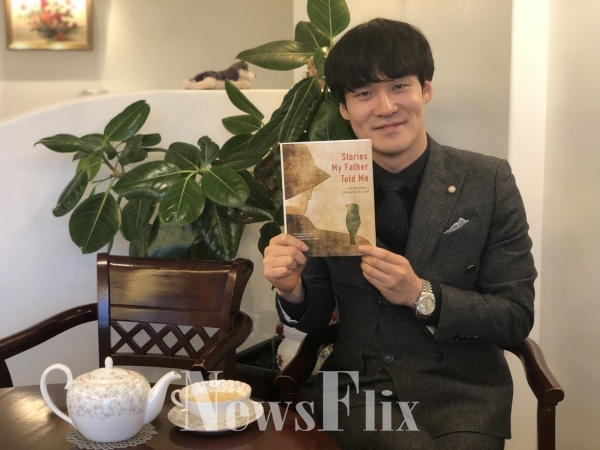
[NewsFlix] 전진홍 기자 = Educationalist Sanghyun Cho (SAC System Corp.), who won the congressional award at the 2018 Korea’s Top Class Awards held at the National Assembly Hall on the last December 28th, appeared on various TV shows including ‘Problematic Men’ of tvN and ‘the Golden bag’ of OBS as an genius educator of 190 IQ to share the reality of Korean students. He always emphasized “students who are tired of their studies require emotional support from their parents”. I conducted an interview with president Cho as he said there is a book to learn the wisdom of life from Korean parent-child relationships.
Q. What has changed in your life after winning the congressional award last year?
A. In order to match the expectation from my acquaintances, I took some time to closely observe and study the lives of Korean students. Different cultures have different internal psychology, and the more I learn about the unique psychological factors of Korean, the more exciting and impressed I become. While reading research papers that studies the psychological characteristics of Korean parents and their children, I ran across a book that harmonizes Korea’s historical background and life wisdom, so I am reading it with many thoughts. This book was written by a professor who studied Korean indigenous psychology for his entire life, allowing me to empathize even more.
Q. Can you tell me about the book you just mentioned.
A. A book about emotion between Korean parents and children, ‘Stories My Father Told Me - Korean Father’s Wisdom for His Child’ contains many wisdom that Korean parents pass down to their children. Reading it was like reading the Talmud. This book tells stories of a father, a farmer who lived in a Korean society which emphasizes the meaning of relationship between its member in ways like ‘Dure’ and ‘Pumashi’, to his children. (Dure: an agricultural union among members of a village to help each other during busy farming seasons. Pumashi: communal sharing of work) This book gives us wisdom that allows us to hear even the dissonance of the world as beautiful melodies.
Q. Which section of the book impressed you the most?
A. Surprisingly, the section of the book that I am impressed depends on the circumstances that I encounter. The book is written like a poem, and the illustrations in the book create a very folksy atmosphere. It’s not easy to express Korean emotions, but this book seems to have a good sense of what being a Korean is like so that even non-Korean can empathize while they read. For example, if one tries to translate ‘사뿐히 즈려밟고 가시옵소서’, a line from Kim Sowol’s poem ‘Azaleas’, it would be such a hard task to catch the sentiment while translating. However, this book was able to create folksy atmosphere in such a beautiful sense, so many foreigners trying to learn Korean culture are commenting the book to be helpful. I am also impressed by such comments.
Q. I noticed that there is a Korean version of the book as well.
A. Yes. The original work is ‘Stories a Father told a Daughter’, published by Mind Book Publishing co. of Korea in Korean, and this book is being popular in China after it was translated into Chinese. Recently, it was also translated into English by HOLLYM international corp. and published with a different name, “Stories My Father Told Me”. You can buy the book not only at Korean online and offline bookstores, but also at Amazon.com, so it is now being read by people all around the world who wants to understand Korean culture. This book, which makes Korean more ‘Korean’, will warm the hearts of people around the world as Talmud used to do. As a result, I recommend ‘Stories a Father told a Daughter’ to Korean parents, and “Stories My Father Told Me” to English speakers. Moreover, I think the English version of the book would beneficial to students starting to learn English.
Q. Do you have any last words?
A. At the first glance, the book is narrated in a tone like a fairy tale, but it is as deep as a fable and contains profound Korean emotions and atmosphere. As one can be inspired over and over by reading Saint Exupery’s ‘Little Prince’ when he reads it after being an adult, ‘Stories My Father Told Me’ would be new and fresh for all age groups depending on what lives they have lived. To our tired minds in this gray city where technology is rapidly developing, I hope such impressive books to spread green color.


